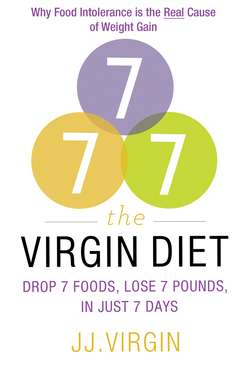Читать книгу The Virgin Diet: The US Bestseller - JJ Virgin - Страница 18
Оглавление
Food allergies are actually rather rare, but they get all the bad press because they are responsible for the really dramatic food problems that we hear about, such as the child who takes one bite of a peanut and then has to be rushed to the hospital. Food allergies trigger special antibodies in the bloodstream known as immunoglobulin E, or IgE, the most aggressive defence system our bodies have. Among other chemicals, IgE antibodies release large amounts of histamine, a substance that causes swelling, mucus, congestion and all the other symptoms that you would normally modify with an antihistamine.
It’s the swelling reaction that makes food allergies so dangerous. In severe cases, the throat and airways become so swollen that they cut off the air supply, making you unable to breathe.
Even without such deadly responses, however, aggressive IgE antibodies generally produce quick, dramatic reactions, appearing within minutes or even seconds after the offending food is consumed. Other allergic reactions include rashes, urticaria (hives), itching, eczema, nausea, stomach pain, diarrhoea, shortness of breath and chest pain, as well as bloating, nausea, cramping and stomach ache. Because much of our immune system is located in the gut, food allergies tend to wreak havoc with digestion.
Now, at this point, you might be thinking, But I don’t have any of those symptoms, and I feel fine after I eat. If that’s your response, terrific! You probably don’t have any food allergies. Most people don’t. But most people do have food intolerance, so let’s take a closer look at that.
